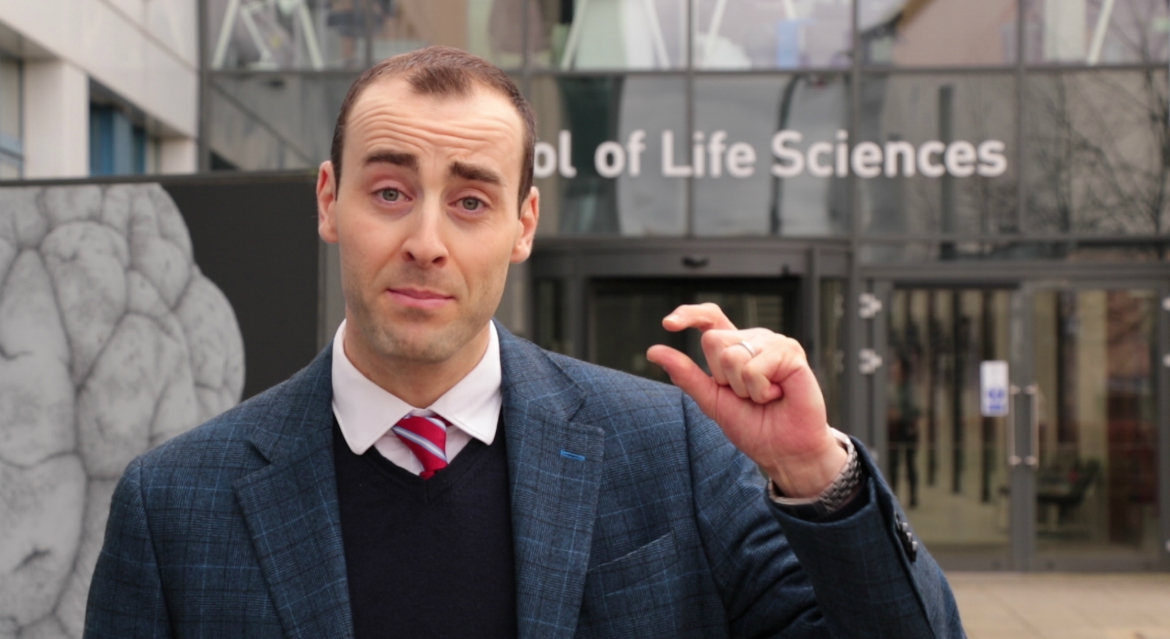“Nobody saw this coming”: Historic breakthrough made at University
Published On Mon 1 Apr 2019 by Jonathan Watson

- A world first - University of Dundee scientists develop ‘InvisiPill’, a capsule that can make humans temporarily invisible
- Effect lasts for up to 80 seconds in early trials
- Further research to continue at the University’s renowned School of Life Sciences
Science fiction has become science fact after researchers at the University of Dundee made a historic breakthrough in the quest to make humans invisible.
The discovery – dubbed ‘InvisiPill’ – has been made by scientists at the University’s esteemed School of Life Sciences, who have created a small capsule that, once swallowed, is capable of disguising a person to the naked eye for up to 80 seconds.
The stunning development was made as part of the University’s continued research into treatments for Neglected Tropical Diseases, harnessing the rare West African plant Prima aprilis.
Professor Olaf Pirlo, who led the research team that discovered InvisiPill, said, “Nobody saw this coming.
“The University of Dundee is already regarded as one of the leading institutions in the world for research in Life Sciences, but this is the sort of development that will resonate far beyond the scientific community.
“We are aware of the significance of InvisiPill and can already see many potential applications, but our focus here will remain on addressing the urgent unmet medical need and lack of drug discovery research for Neglected Tropical Diseases.”
Once swallowed, InvisiPill is effective for anything between 60 to 80 seconds – roughly the time it takes for blood to travel around an adult’s body. While researchers are only beginning to understand exactly how InvisiPill works, it is believed that its remarkable effect is the result of a previously unknown compound within the plant, AFD-19, which has been found to interact with the white blood cells found in humans.
To work, the capsule must be ingested in a completely dark environment. Throughout trials, researchers have ensured the safety of those taking part by only trialling InvisiPill in secure environments. So far there have been no reported side effects, although those involved in the project insist that their research remains at an early stage.
The discovery is just the latest to have been made by staff at Dundee, which is widely regarded as one of the world’s leading universities for Life Sciences research. While unable to disclose further details at this time, Professor May B. Fable, who is working alongside Professor Pirlo, said that she will never forget the moment she learned of InvisiPill.
“Those seconds will stay with me forever,” she said.
“We are aware that the work we are doing here at the University of Dundee helps to transform lives around the world, whether it is developing potential treatments for neglected diseases such as visceral leishmaniasis, or identifying drug candidates for Chagas disease. However, the power to become invisible has fascinated humans for centuries, so to think that we in Dundee have developed something that will capture the imagination of people around the world is just incredible.
“It is ironic because when Olaf visited me in my office, as soon as my door opened I said I was incredibly busy and couldn’t see him. He responded by saying, ‘I know you can’t see me right now,’ and before I lifted my head I realised that InvisiPill had become a reality.”
Find out more about the InvisiPill here.
For media enquiries contact:
Jonathan Watson
Media Relations Officer
University of Dundee
Nethergate, Dundee, DD1 4HN
Tel: +44 (0)1382 381489
Email: j.s.watson@dundee.ac.uk